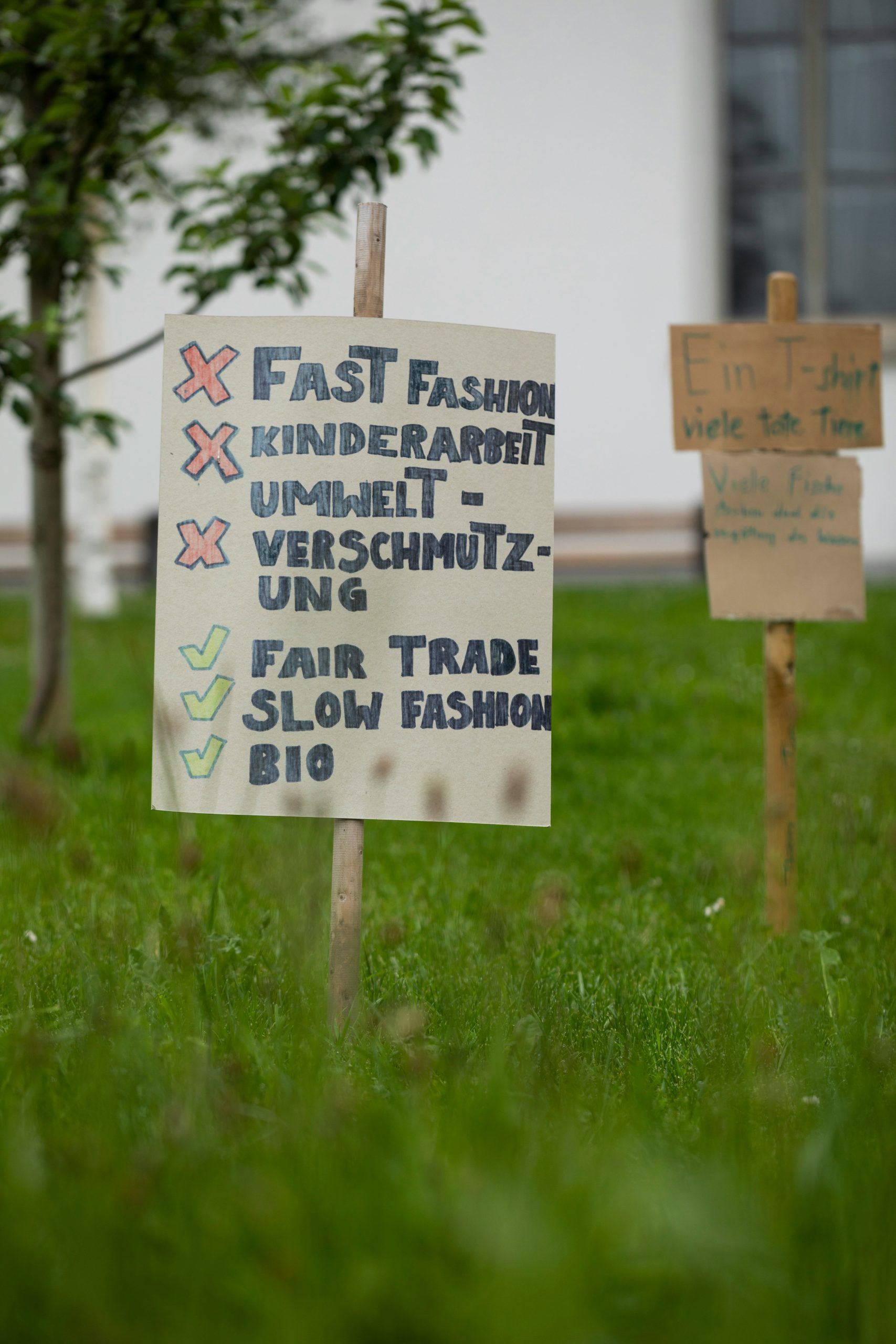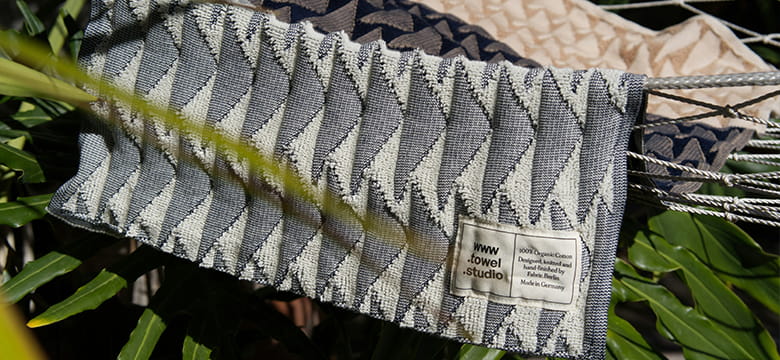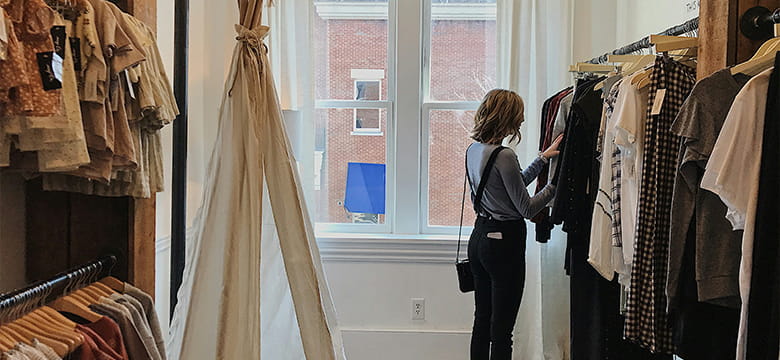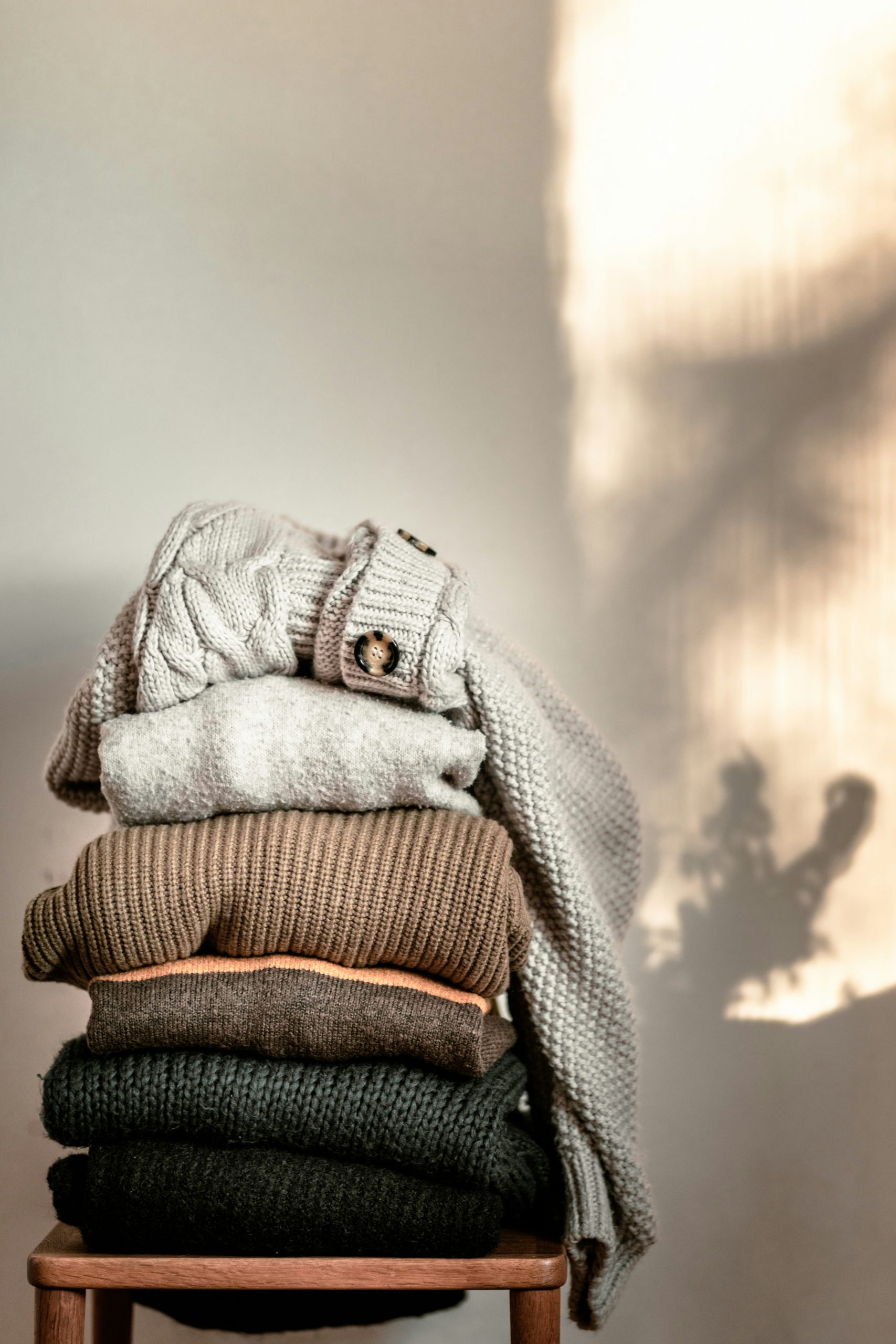What is Ethical Clothing intended for you? Wage contracts and safe working conditions? Sustainable materials? Environmentally friendly? All of the above?
In this article, we’ll explain what ethical clothing is, why it’s important, and provide you with the knowledge you need to make informed decisions about your fashion decisions.
What is Ethical Clothing?
‘Ethical Clothing’, or ‘Ethical Fashion’ as it’s most commonly called, is a term that encompasses all of the concerns associated with design and manufacturing: while maintaining ethical standards, a company is prioritizing the welfare of its employees while minimizing the environmental impact of its actions.
In an article that explores the value of ethical clothing stores, Ethical Consumer Magazine defines the concept as follows:
‘Ethical fashion’ is also known as slow fashion or sustainable fashion, it’s a style of clothing production and acquisition that takes into account environmental and other social issues. These concerns can be about the fair treatment of workers or the use of organic cotton.’
What is meant by being ethical about clothing?
For a brand to be considered ethical, it must follow certain principles during the manufacturing process, including safe working conditions, a fair wage, and standard hours. Additionally, one aspect of an ethical clothing brand is their capacity to produce products while minimizing the impact on the environment.
It is difficult to differentiate between ethical brands and other brands that have the same values, such as ‘Fair Trade’, ‘sustainable’, and ‘slow fashion’. However, it is important to remember that regardless of the degree to which a brand is ethical, it still must prioritise these values in addition to ensuring that workers are safe and paid well.
Ethical brands will cultivate relationships with vendors, and in many instances, will support traditional methods of production and community involvement.
How does one find a reputable clothing company?
How is it possible to know if a corporation is genuinely ethical or simply appears to be so? It’s difficult to determine if a brand is ethical, especially when the same terms are employed, such as ‘ sustainable’ or ‘organic’. It is difficult to differentiate between brands that follow ethical principles.
Here are five critical questions that can be asked of you or the company, which will ensure that your brand is supported:
Is the chain of supply fully transparent?
Do they divulge information about the places they acquire their supplies?
Does the corporation have a basic ethical philosophy at its core, and if so, on their mission statement, or does they only provide a limited range of ethical/ sustainable clothing that is intended to attempt to ‘offset’ the corporation’s more harmful production methods?Observe their interaction with their online community – do they have allies in the ethical clothing industry?
Is the brand small and dedicated?
On the whole, ethical clothing brands tend to operate at a smaller scale, which results in a superior quality over quantity approach, with smaller ranges but high quality collections.
Smaller ranges and fewer micro-seasons correspond to smaller, more direct supply chains, and reduce the danger of dangerous production lines outsourcing.
Many small independent brands have more direct ties with their suppliers. For instance, at RARE & FAIR, we personally meet with our suppliers and craftsmen in order to understand their concerns and make sure all laborers are receiving a fair salary and treated well.
As more companies are being examined on their manufacturing methods, consumers are increasingly trusting in the brands that are being accountable. Ethical fashion is now more prevalent, this has led to an increase in the identification of which companies to trust and which to avoid. However, there is still a tendency for large brands to greenwash customers by offering limited quantities of environmentally friendly or organic clothing, with little information regarding the production method or sustainability of larger collections.
Large brands must take responsibility for the areas of neglect in their supply chains, commit to making improvements, and follow through with these commitments. Until then, it’s important for customers to fully prepare themselves for the questions that they should ask when challenging their preferred high-end brands, and to vote with their feet if the company fails to live up to their personal ethical and moral standards.
What should you avoid when seeking out an ethical company?
Two words: Fast, Pricing.
Large quantities of cheap clothing are produced in mass quantities. This is a large red flag. It’s unlikely that ethical standards are present in every manufacturing process, combined with a lack of transparency, it is difficult to locate the company’s policies. Some brands may not even realize what is happening at the factory level, as we have recently seen in the news with brands that were accused of failing to pay workers their minimum wage.
Fast Fashion
Recently, we’ve seen the rise of fast fashion – a doctrine that encourages consumers to purchase items that are essential, then only worn once before being discarded. Where previously it took months for clothing to go from design to the shop floor, fast fashion brands have utilized modern production methods to produce inexpensive items in a few weeks.
Large quantities of garments with a low price are produced, this produces a large effect on the supply chain as a whole, suppliers are pressured to lower their prices in order to remain competitive, which in turn causes them to lower their resources.
The bottom line is the cost of the product, if you believe something is a great deal, the probability is that the brand is taking advantage of you, either by taking your money or by not following safety regulations. As Lucy Siegle’s skepticism regarding the documentary The True Cost is apparent.
‘ Fast fashion is not cost-free. Somebody is probably paying.
To augment the flame, gone are the days of just two seasonal cycles on the high street (spring/summer and fall/winter). With shorter cycles of fashion, we are now witnessing up to 100 micro-seasons per year, which is almost two new collections per week!
With fast fashion taking an active part in the culture of wearing it once, ethical clothing is intended to counter this by producing high quality garments that are intended to last. Supporting a ‘closing the loop’ approach to manufacturing clothing, ethical brands are altering the way we dress ourselves by starting from the bottom.
Greenwashing
Some brands will utilize terms like “green” or “eco-friendly” in their marketing, but this is deceptive and allows a brand or corporation to appear more environmentally friendly or ethical, without the means to support it.
One popular example of this is the Conscious Collection from H&M: this particular line of clothing is said to be made using environmentally friendly materials and methods, however, H&M has been criticized for mising over their customers. In 2019, the deputy director of the Forbrukertilsynet, or Consumer Authority, said concluded:
Since H&M is not providing the consumer with specific information about the cause of the labeled Conscious clothing, we deduce that consumers are being misled by the label as to the supposedly greater sustainability of the product.
Famous brands that have dedicated environmental messages to their marketing have observed a increase in sales, this is a direction that is popular in the fashion industry.
The Center for Sustainable Business at NYU Stern:
‘Green’ products that were marketed as sustainable had a 5.6 times greater growth rate, this shift in preference was indicative of a change in consumer behavior towards environmentally friendly products.
If companies can promote a specific product as environmentally friendly, this will appear to be a more environmentally responsible business overall.
As a consumer, it’s important to recognize that simply because something is called “eco-conscious” or “green” doesn’t necessarily mean that the company is completely ethical or sustainable.
Can affordable fashion be considered ethical?
This raises the question, is it possible to produce large quantities of clothing that are both affordable and ethical? It may be possible, but it will necessitate both top-down and bottom-up controls, as well as a change in the mindset of consumers, where ‘affordable’ doesn’t necessarily mean the ‘cheapest at any cost’.
As documented in the documentary The True Cost, brands will often take advantage of the low cost of manufacturing items by paying smaller factories less for their labor. This has a negative impact on the health of the nation as garment factories are compelled to accept lower rates of employment, if they refuse to do so, they will be at risk of not receiving work in the future, which will lead to lower wages, longer hours of work, and limited budgets.
To maintain a healthy supply chain, fashion brands should stop manufacturing items at unrealistic prices, they should also provide more information about the items’ sources in addition to the information already available on the items’ manufacturing. More information is available to consumers, which allows them to decide for themselves if a particular brand or item of clothing is worthwhile and affordable, taking into account the way it is produced and whether it concords with their personal ethical standards.
Governments also have a role to play, via more stringent regulations and environmental goals for fashion retailers, as well as rewarding companies that are ethical through tax breaks, grants, and subsidies, these programs then cascade down to customers via the price tag.
The difficult task of creating high-end fashion with a lower cost.
One of the greatest difficulties associated with ethical companies is attempting to engage with consumers who want a lower price. With the proper budgeting of resources between sturdy supply chain processes and environmentally friendly materials, the expense is reflected in the finished product. Ethical clothing brands are selling items of high quality that are also associated with a lifestyle, but they lack the ability to provide prices that are fast.
In a perfect world, all clothing would fulfill every ethical requirement, but this is Unfortunately, sometimes sacrifices are necessary, especially when it comes to budgeting. Understanding your personal ethical beliefs will facilitate the selection of ethical brands. Consider how much you care about the environment, workers’ rights, and animal rights, having a basic understanding of your personal moral philosophy will assist in making these difficult decisions. Most importantly, question things, and if you’re unsure, vote with your feet!
Purchasing ethical clothing – why is it important?

Basic.Human.Rights.
Everyone should have the basic rights that everyone is entitled to, and we are almost certain that if you read this, you will as well.
purchasing a blouse shouldn’t necessitate the employment of a garment craftsman. Materials that are intended to shield our skin shouldn’t contain harsh chemicals. We think that the fashion industry is capable of catalyzing positive change; encouraging skilled labor and communities, and preserving traditions and rich history.
By purchasing from a ethical company, you’re contributing to and enhancing the real world, as well as making a conscious decision to minimize your environmental impact.
It can appear to have more influence once you’ve recognized the full capacity of your purchasing decisions, however, similar to any ethical or sustainable journey, it begins with small steps.
Quality over quantity
It may seem to have a higher cost in the short term, but by purchasing fewer items, created through ethics, you will be increasing the life of your Wardrobe, and with proper care, your clothing will have a longer lifespan.
One could also advocate that, theoretically, ethically produced clothing is cost-effective – this is the amount of clothing that should cost when workers in garment industries are paid a sufficient wage, they can operate within safe conditions, and factories should not be placed in a position that require them to accept any cost.
However, when discussing quality, it’s also important to be cognizant of that some of the prominent luxury brands still have to be aware of the information regarding quality, specifically regarding leather and fur. Unfortunately, it’s a common misconception to believe that simply because something is more expensive, that the brand will still maintain ethical behavior during the production process.
In the documentary, DW focuses on the way high-end leather is made, there are some of the problems associated with high-end fashion brands today.
As is currently stand, large brands that are designed by humans have the greatest capacity to promote ethical behavior, however, many of them are not aware of the issues that are associated with their own supply chains.
It’s crucial to recognize that although a brand is designed, it doesn’t necessarily follow the ethical rules. Other problems, including ethical concerns, are present in the fashion industry at every level, from the high-end to the low-end.
Ethical clothing supports people and the planet
Ethical clothing brands have a greater concern for sustainability, they not only minimize the impact on the environment, but also advocate for workers who have good salaries and live in safety. By encouraging their employees to participate in community activities, they are also contributing to the local economy. In some smaller communities, this also involves preserving the local cultures and traditions of crafts.
Most importantly, ethical clothing brands are concerned with the morality of the planet and the people.
How Guooufashion demonstrates the actual meaning of Ethical Clothing?
As an top-notch knitwar manufacturer, we’ve dedicated time to developing long-lasting relationships with our suppliers, this has led to the ability to traced every single component back to its original location. More information about our methods in the ‘promissory note’.
Every purchase from us will preserve the culture and traditions of the crafts, and will support the women and communities from locals.
Here are just a few instances of how Guooufashion benefits its employees and communities:
Hand-stitching in our area is a centuries-old tradition that has been passed down from generation to generation and is used to improve the quality of life of the locals.
Fashion knitwear hub – promoting local pride and social responsibility, with legitimate wages and safe employment.
Ethically shopping means that you don’t have to sacrifice fashion, at Guooufashion, you will find everything necessary for any occasion.
More information about our ethical clothing manufacturing and how we support the communities that design and create our collections can be found in our industry news, or by following our instagram for more!

 English
English Deutsch
Deutsch Français
Français Italiano
Italiano Español
Español Русский
Русский Polski
Polski Nederlands
Nederlands Svenska
Svenska




